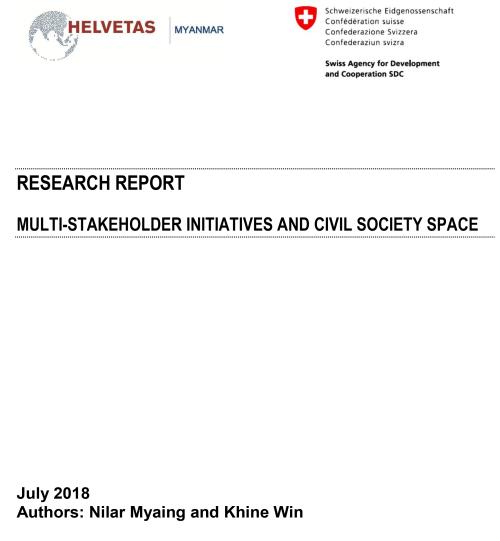The role of civil society as independent development partner for effective development cooperation was acknowledged at high-level forum on development effectiveness held in Accra, Ghana in 2008. Since that time and within 3 years of consultative processes and various levels of meetings among civil society organizations (CSOs), through global CSO-led Open Forum, thousands of CSOs took part to define principles and practices that should shape their effectiveness in development as distinct, diverse and independent development actors1 . One of the important outcomes of these initiatives was what we now call “Istanbul Principles on CSO development effectiveness” as civil society organizations reached a global consensus on these principles in Istanbul, Turkey in 2010 June. Subsequently, CSO framework for development effectiveness was adopted in Siem Riep, Cambodia in 2011. These principles and framework serve as standards and guidelines for CSOs in carrying out their various functions as independent development partners. At the fourth High Level Forum (HLF) on development effectiveness held in Busan, Republic of Korea in 2011, CSOs were invited for the first time to participate on equal basis with government and donors. At that HLF, principles of development effectiveness cooperation were agreed upon by more than 160 countries and 50+organizations2 One of the principles is inclusive development partnerships and in order to monitor the implementation of these principles at country level, 10 indicators were developed with the agreement of all partners and indicator 2 states “Civil society operates within an environment which maximizes its engagement in and contribution to development”. These principles mentioned above ensure one way or another “enabling environment for CSOs particularly their ability to engage with other development partners through multi-stakeholder platforms.
Published By:
Published Date:
